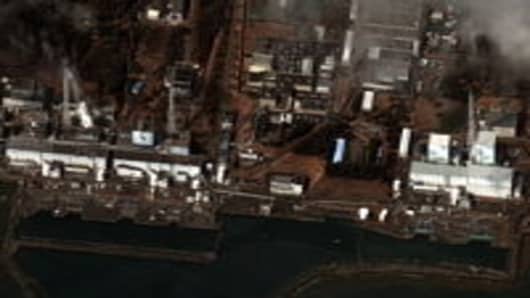Plans to develop new nuclear reactors may have to be put on hold until world leaders assess the causes of Japan's nuclear disaster and how to prevent a repeat of the accident, Luis Echavarri, director of the OECD's Nuclear Energy Agency told CNBC.
The accident at the Fukushima Daiichi was upgraded to a level 5 rating from a previous 4 on a 1-7 scale, putting it on a par with the Three Mile Island accident in the United States in 1979.
"Of course there will be some delays until we analyze the Japanese event," Echavarri said, "we have to understand what has happened there." The main question is whether the Fukushima catastrophe was due to disproportionate and unusual natural events or to human error and systemic defects, he said.
In that case, "this would imply a complete revision of the safety standards and safety criteria, and it would take some time," Echavarri added.
There are currently 62 nuclear reactors under construction in the world, with nearly half of them being built in China, according to the World Nuclear Association. In addition, there are 158 new reactors planned, with 50 of them in China.
Although China's nuclear-produced electricity only represented less than 2 percent of its production, Echavarri estimated that "China without nuclear plants is unrealistic." Brazil and India both produce nuclear electricity at similar ratios, which leaves a great margin for development, according to the World Nuclear Association.
"I cannot imagine a world without nuclear energy," Echavarri said.
France has the biggest share of nuclear energy out of total energy production, at close to 80 percent. It has 58 active nuclear plants and two new reactors are under construction.
To make up for the closure of only two nuclear reactors and supply Paris with electricity, studies show France would need to build either five water dams or 360 wind mills or cover approximately 30,000 acres (46.9 square miles) with solar panels.
"It is not realistic," Echavarri said, "I am totally convinced they are going to continue with their plans." In Europe, people have started to raise concerns about nuclear energy.
German chancellor Angela Merkel had to face the issue and announce on Monday a three -month moratorium before she decides or not to extend nuclear production in the country.
"(Nuclear energy) needs popular support," according to Echavarri, "it is a matter of perception of safety in nuclear plants."
- Stephane Pedrazzi, Paris CNBC correspondent, contributed to this report.


